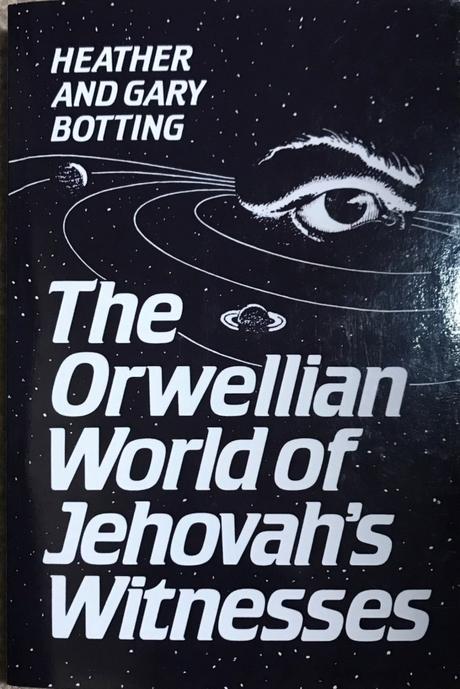
To truly understand a religion, you must be part of it. This is the dilemma that underlies the entire discipline of religious studies. And it all comes down to that slippery concept of “belief.” One of the books that has been on my reading list for years now is Heather and Gary Botting’s The Orwellian World of Jehovah’s Witnesses. What finally prompted me to read it was the (relatively) recent receipt of an invitation to spend what many call Good Friday (for it is today for the Orthodox) with the local Kingdom Hall crowd. As I mentioned in an earlier post, the last people to come to my door before the pandemic began were the Jehovah’s Witnesses. I’ve read about them before, but scholarly literature on the sect is rare, despite their obvious influence. One reason for this, I suspect, is that to understand you have to partake.
This is where the book by the Bottings comes in. They were raised as Witnesses and eventually left. They have been on the inside. This book takes the interesting hook of comparing that inside world to the vision of the Party in George Orwell’s 1984. Not only that, but the math regarding the end of the world, or Armageddon, more properly speaking, showed that 1984 was the terminus for the next phase of Witnesses’ history inaugurated by the spiritual return of Jesus in 1914. It is no accident that this book itself was published in 1984. The world of the Watchtower is explored creatively and somewhat thoroughly here. The only problem with reading it nearly forty years later is that I’m left curious for updates. The Witnesses are, after all, still out there.
The thing about beliefs is that we all have them and we can’t always explain them. They are part of our rational faculties, but also part of our emotional thinking as well. No one is totally objective and even Mr. Spock gives in to feelings once in a while. No system of belief is entirely rational. Since we don’t have all the data it necessarily can’t be. We tend to believe what we feel is right. Those raised in traditions of NRM (New Religious Movements) absorb the beliefs their parents and guardians teach them just as much as Catholic school kids do. They are often warned about those outside the tradition and what they will inevitably say about it. This makes them look prophetic. Once a child has been raised in an exclusionary system, getting her or him out of it is not only difficult, but often damaging to them. So it is with belief. This book really made me think.
